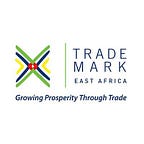Supporting Rwanda farmers to reduce losses and access markets
For many farmer cooperatives across Rwanda, especially those that farm staple crops, access to finance has always been an issue and this is complicated by post-harvest losses that discourage finance providers from investing in agriculture. Positively, the government of Rwanda is undertaking improvement in infrastructure such as cold storage facilities, road and air transport to eliminate post-harvest losses and make agriculture value chains an exciting investment prospect.
Joshua Rugema, Country Director, The East Africa Exchange (EAX) states that, “right now, Rwanda’s agriculture export revenue is an average of USD 500,000,000 per year and I believe that with the investments being undertaken, we will easily get to US$ 2bn in 2023 by embracing innovative agricultural value chain strategies, and utilising the conducive environment government has created.”
TradeMark East Africa is supporting these efforts and has partnered with EAX to reduce risks by training farmers in production, post-harvest handling, cooperative governance, while at the same time providing equipment for grain management and building linkages to markets. Two years into the programme, farmers now access larger markets, have reduced rejection rates for their grains by over 70% and access loans against their grains.
EAX is a regional commodity exchange established to link smallholder farmers to agricultural and financial markets, secure competitive prices for products, and facilitate access to financing opportunities.
EAX in Rwanda has maize, beans and soya farmer cooperatives representing around 80,000 farmers. For the past four years, EAX has enabled soya, maize and sorghum farmers from 500 cooperatives to secure bank loans worth US$4.7million from using their harvest stock in warehouses as a collateral.
The partnership with TMEA with funding from UKAID, Belgium, Global Affairs Canada, Netherlands, Ministry of Affairs Finland, Netherlands and USAID, is consolidating these gains. Joshua Rugema, Country Director for EAX underscores the need stating, “In 2018, over 70% of supply from cooperatives we work with were rejected because of prevalence of aflatoxin, which makes crops unfit for human consumption. In terms of volumes, this 70% equals 17,200 tons of maize worth Rwf 4.3 billion.” Rwanda produces an estimated 700,000 tonnes of grain annually, according to statistics from Rwanda maize farmers’ cooperative federation and like other East African countries aflatoxin contamination from fungi remains a threat. In Rwanda, levels of aflatoxin increase rapidly during post-harvest processing and subsequent poor storage of grain.
Improving staple quality
With TMEA partnership, EAX is focusing on, “helping smallholder farmer cooperatives to the next level by giving them access to finance, access to safe and secure storage, access to market information and methods on how to improve quality of their grains, which in turn gives them access to premier markets.” How does this work? EAX reaches out to identified cooperatives where it provides training on post-harvest handling, agricultural practices, drying and storage services, and linking them to financial institutions. This has enabled farmers access major processing companies that are usually governed by strict standards such as Africa Improved Foods (AIF) and MINIMEX.
Ramba Gatunda Cooperative in Nyarurema district started in 2011 and its members grow beans, soya and maize. Rusi Muhimundu, its President says that, “Since engaging with EAX we’ve managed to increase our harvests each season. The trainings have helped us learn effective agricultural practices, as well as how to better govern our cooperative.”
Reducing post-harvest losses
To address the issue of post-harvest losses EAX conducted a needs assessment with cooperatives countrywide in 2018 and consequently developed a training curriculum that was delivered to twenty trainers who in turn train trainers that are members of cooperatives. Topics range from secured storage, quality improvements to harvest, as well as inventory financing. Cooperative representatives then transmit the same knowledge to their cooperative members. Florence Niyikuze is a trainer, farmer and member of the Ramba Gatunda Cooperative. She says, “Support from EAX brought a lot of changes to our crop yields. Last season, our crops were categorized as Grade 1 and we sold all of it. This is because of the training on pre- and post-harvest processing.”
Additional to production and storage training, cooperatives are trained to use aflatoxin testing kits. The acquisition of two mobile dryers has led to significant improvement in the overall quality of maize delivered to the market by the cooperatives. According to Olivier Ngoga, Commercial Director at EAX, “in normal circumstances, maize can be sun-dried. However, the big harvest of maize in Rwanda takes place during the rainy period (February — May), meaning that the drying process is quite difficult. The impact of driers therefore is to help farmers speed up the drying process through mechanization and this has significant gains in limiting post-harvest losses.”
“Grant funds from TMEA enabled us to get two mobile driers to deal with this issue. We brought the dryers as close as possible to the farmers, and this has helped deal with the issue of aflatoxin,” states Joshua.
Cooperative Governance
Perhaps the most critical element in taking Rwanda’s agriculture export revenues to the next level is the effective and efficient management of its farmer cooperatives. To this day, it is large cooperatives that have driven agricultural transformation in countries such as Denmark, South Africa or some Eastern European countries like Ukraine. These countries are considered breadbaskets of Europe. “This success is due to good governance,” says Joshua. “Cooperatives drive production, investments and exports.”
Following a needs assessment exercised by EAX, farmer cooperatives are trained on principles of cooperative structures and various corporate governance organs and committees. The theoretical and practical trainings are to ensure proper checks and balances, transparency and efficient governance of the cooperatives. This training on cooperative governance complements TMEA interventions, which are geared at ensuring sustainability of the agricultural outputs that these cooperatives work toward.
